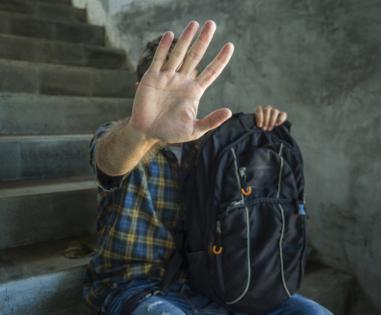Commentary: The abuse story that's seldom told
Published in Op Eds
For years I tried, and mostly failed, to tell the story of my childhood molestation.
I played a kind of literary hide-and-seek. To throw the reader off my trail, I threw my voice. I became a practiced ventriloquist. My first dummy was a poem, and even though my poetry tends toward the confessional, I couldn’t bring myself to confess openly. I used metaphor, fine writing, versifying, as a feint.
Five years later, I tried again.
This time, in a novel, I could lend my sexual abuse to my characters. I was able to evoke every telltale detail at a remove. After all, it wasn’t me.
That’s how I’d seen it done by writers I loved. The sexual abuse of boys and men mostly happens in fiction, in Dennis Lehane’s “Mystic River”; Tom Rob Smith’s “Child 44”; Lorenzo Carcaterra’s “Sleepers”; the mysteries of John Banville, writing as Benjamin Black, starting with “Christine Falls.”
I don’t imagine these novelists have themselves been abused. I don’t believe you must experience a thing to write about it authentically. Many writers have lived through events only to write about them poorly. For a fiction writer, there’s no more damnable excuse than “but that’s how it happened.”
And so, over the years, I’ve watched with awe as a few novelists have come out about their abuse. Alexander Chee broached the subject in “Edenborough.” He then dealt with it nakedly in essay after essay collected in the cleverly titled “How to Write an Autobiographical Novel.”
Junot Díaz, in the title short story of his collection “Drown,” has his protagonist molested by another character. Twenty-two years later, he wrote a bombshell of a personal essay about his repeated boyhood rape at the hands of an uncle.
There are similarly crucial essays, by Barry Lopez and Saïd Sayrafiezadeh.
Watching and reading these writers, these men, as they wrestled publicly with their abuse gave me courage. I, too, wanted there to be nothing left to hide, and nowhere to hide it.
But when I started a memoir — a project that took as its subject my childhood sexual abuse by my babysitter, a teenage boy, and how my molestation coincided with my mom’s violent rape — I found few book-length models among male writers.
Numerous women have been able to present the sexual violence they endured as the central subject of a memoir. We men tend to be more circumspect. But the strong, silent type doesn’t lend itself to memoir.
When I finally finished writing mine, I reached out to Lacy Crawford, whose story of abuse, “Notes on a Silencing,” was published in 2020. Her response confirmed what I’d encountered: “In my experience, receiving hundreds of disclosures and talking about sexual abuse all the time for four years, I have seen over and over how impoverished this discourse is for men and boys.”
Impoverished indeed, but not because we men don’t know our share of sexual violence.
Strong evidence supports the finding that 1 in 6 men have been sexually abused or assaulted. This means every sixth dad on the sidelines of a soccer game, every sixth podcast bro or guy author on your bookshelves intimately knows sexual abuse and its aftermath.
When we men do write about sexual abuse in longer works of nonfiction, we don’t dwell — see “Transparent,” by Don Lemon or “Coreyography,” by Corey Feldman. The exceptions I’ve found are Stephen Mills’ “Chosen” and Charles Blow’s “Fire Shut Up in My Bones” — memoirs by men who acknowledge their abuse as a defining feature of who they are.
Few men are up to this admission, and the effect of this dearth, what Crawford called our impoverished discourse, is that men have an easier time giving the benefit of the doubt to abusers over the abused.
How else could so many of us vote to reelect Donald Trump for a second presidential term?
While we men who’ve been abused are a large silent minority, that telling 1-in-6 statistic has a flip side: 5 in 6 men have no firsthand knowledge of what it’s like to be victimized sexually. This means more than 80% of men may suffer an empathy gap created by an absence of personal experience.
What if the silent minority of abused men were more vocal? What if the discourse were richer and more robust?
I’m not advocating for all abused men to come out at once in a #MenToo co-opting of #MeToo. Opening up, sharing our stories in a healthy way, takes years. And for men, as compared with women, there is less emotional infrastructure in place for support. For most of us, most of the time, telling our loved ones — our husbands and wives, parents and children — may well be enough.
But what if the 5 in 6 men who’ve been spared the lifelong indignity of being sexually abused spent a little more time exercising their understanding, reading a few of the essays and memoirs by abused men and women? It could bridge the empathy gap. A gap that should be narrowed by this knowledge: A mere 2% to 8% of sexual-assault accusations are deemed false.
Perhaps then men, abused and unabused alike, would side more readily with E. Jean Carroll, whose claims against Trump were found by a jury to be factual. And the next time another R. Kelly or Donald Trump makes a plea of innocence or a play for power — despite overwhelming evidence of abuses after the application of due process — we may face less resistance when ushering them off the national stage once and for all.
____
Jay Baron Nicorvo is the author of the memoir “Best Copy Available,” the novel “The Standard Grand” and the poetry collection “Deadbeat.”
_____
©2025 Los Angeles Times. Visit at latimes.com. Distributed by Tribune Content Agency, LLC.




























































Comments